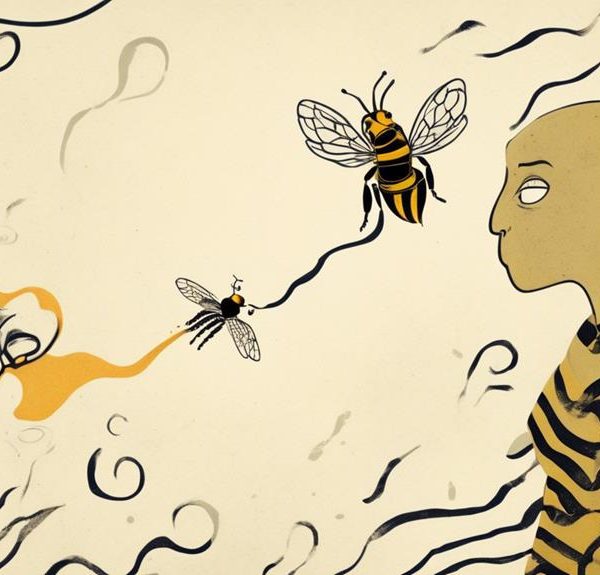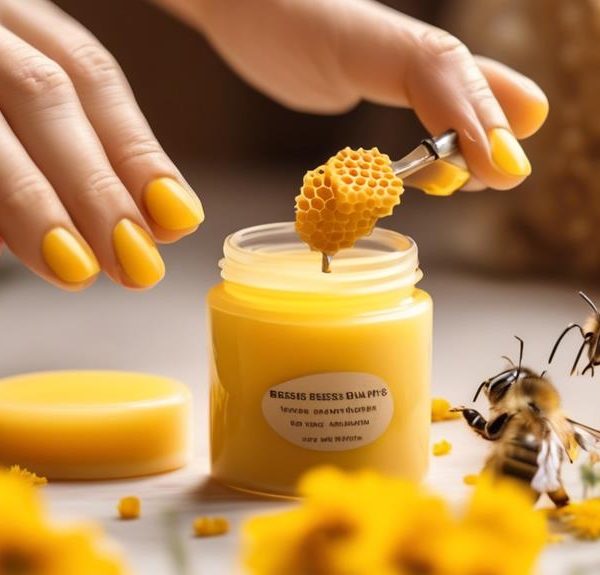Facing superstitions head-on, we delve into the world of bees, exploring their cultural significance and scientific importance; are they really a bad omen?
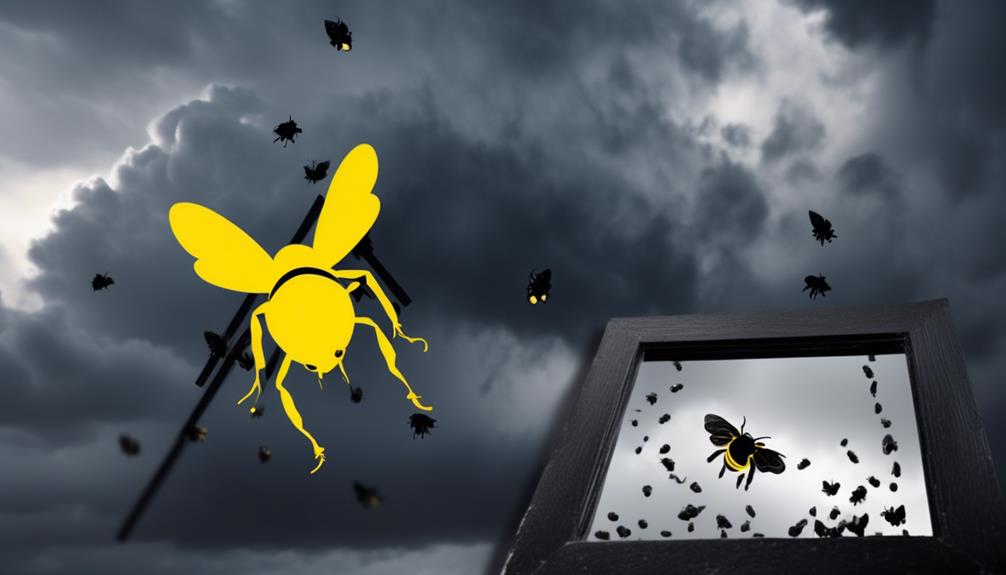
Are Bees A Bad Omen?
Imagine you're a ship captain, navigating the vast ocean of superstitions, myths, and folklore, and suddenly you're faced with the buzzing question: are bees a bad omen?
From antiquity to the present day, different cultures have varied interpretations about these industrious insects. Some see them as harbingers of good luck, others as messengers of the gods, and a few even regard them as omens of impending doom.
As you ponder this, you might wonder what science has to say about this intriguing belief. Well, hold tight on the helm, as we're about to explore the fascinating world of bees and their true significance in our lives.
Key Takeaways
- Bees have been historically and culturally associated with royalty, power, wisdom, and guidance.
- Bees operate in a highly organized society and use sophisticated forms of communication.
- Bees are vital to the ecosystem and indicate a healthy environment.
- Superstitions and misconceptions about bees have shaped people's attitudes towards them, leading to unnecessary fear and avoidance.
Historical Beliefs About Bees
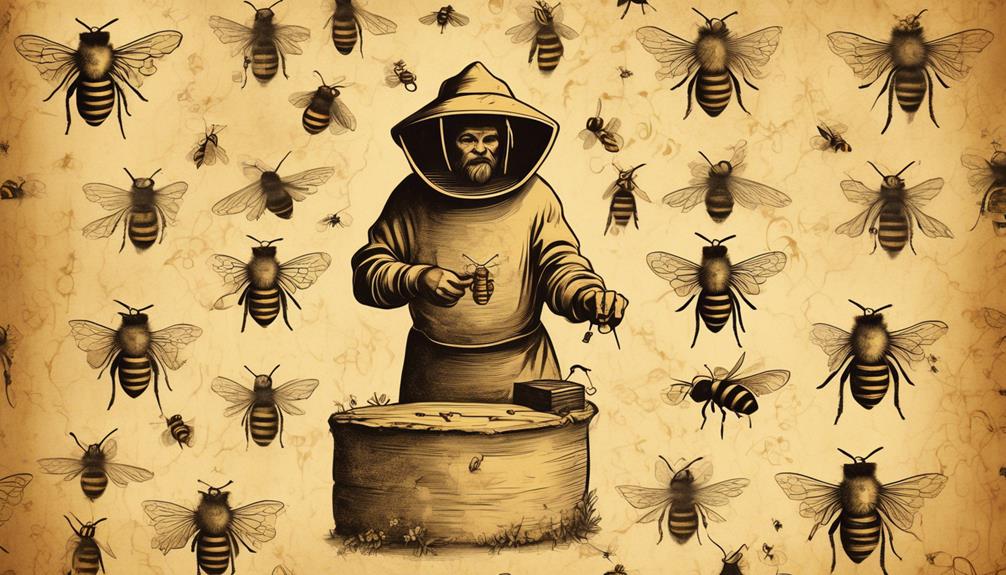
Throughout history, societies have often attached symbolic meanings to bees, viewing them as more than just honey producers. Did you know, for instance, that in ancient Egypt, bees were seen as symbols of royalty and power? They were even personified as the god Ra, the sun deity, who was believed to create bees from his tears.
Contrary to this, in Celtic mythology, bees were seen as messengers between our world and the spirit realm. They were thought to carry wisdom and guidance from the otherworldly beings. You might find it interesting that, in this context, an encounter with a bee wasn't considered ominous but rather a highly spiritual event.
The Greeks also had their unique take. To them, bees symbolized industry, creativity, and wealth, primarily because of their honey-making abilities. Aristotle, the renowned philosopher, believed that bees were the bridge between the human soul and the cosmos.
In essence, your perspective on whether bees are a bad omen or not largely depends on the historical and cultural lens you're looking through. It's clear that bees hold a significant place in human belief systems, often symbolizing more profound, mystical realities.
Bees in Different Cultures
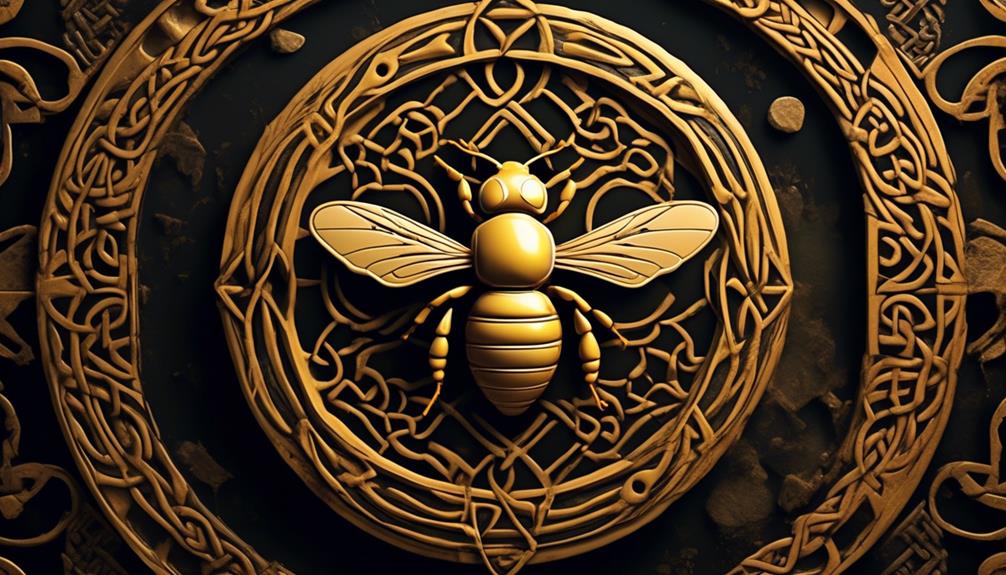
Building on these historical interpretations, let's now explore how various cultures perceive bees, as these tiny creatures have diverse symbolisms across the globe.
In ancient Egypt, bees were seen as symbols of royalty and power, often associated with the Pharaohs. They were believed to be born from the tears of the Sun God, Ra, hence their connection to divine entities.
Contrarily, in Celtic mythology, bees were considered messengers between our world and the spirit realm. They were seen as bearers of good luck and were often associated with wisdom and guidance.
Native American tribes, too, revered bees for their industrious nature, viewing them as a symbol of hard work and perseverance.
In Hindu culture, bees have spiritual connotations and are often linked to Vishnu, Krishna, and Kama, the gods of preservation, love, and desire, respectively.
On the other hand, in some African cultures, bees symbolize communication and family unity, reflecting their communal living.
It's clear that the perception of bees varies greatly across cultures, with most placing positive associations on these industrious insects. Therefore, considering bees as a bad omen mightn't be universally accurate or fair.
Scientific Analysis of Bee Behavior
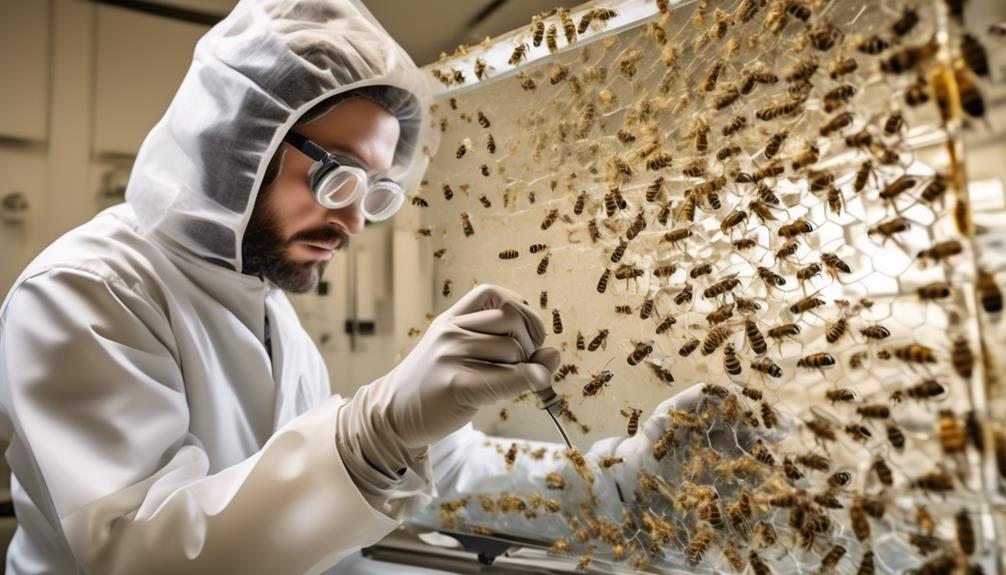
Diving into the world of science, let's examine how bees' behavior has been extensively studied and analyzed, revealing fascinating insights into their complex social structure and communication patterns. Scientists have discovered that bees operate in a highly organized society, with each bee having a specific role to play. They've found that bees use a sophisticated form of communication, known as the 'waggle dance,' to convey information about food sources to their hive mates. This dance is a precise way of indicating the direction and distance of the food source.
But what does this mean for you? Well, it's important to understand that bees aren't just mindless insects. They're highly intelligent creatures with complex behaviors, and they're absolutely vital to our ecosystem. They're not omens of bad luck, but rather indicators of a healthy environment. If you see a bee, it's not a sign of impending doom, but a signal that nature is functioning as it should.
Popular Superstitions and Bees
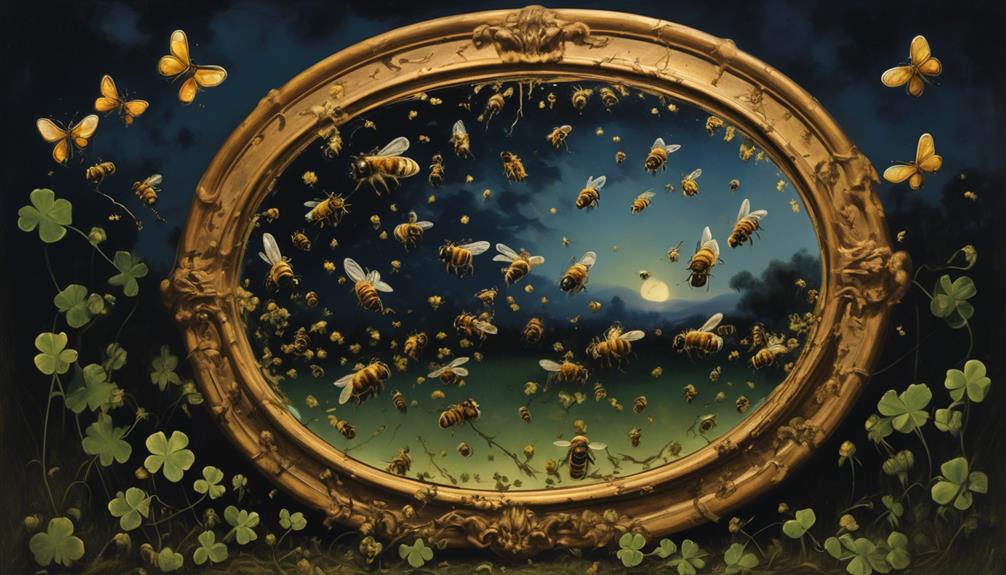
Despite the scientific understanding of bees, various cultures around the world hold certain superstitions that associate bees with both good and bad omens. You'll find that some beliefs peg bees as harbingers of good fortune, while others see them as signs of impending doom.
In some cultures, it's believed that bees entering your house signify a visitor's arrival. Others take it further, associating the color of the bee with the nature of the news the visitor brings. A black bee might indicate bad news, while a yellow one might suggest good tidings.
On the flip side, you've got superstitions that regard bees negatively. For instance, it's thought unlucky to kill a bee within your home as it'll bring misfortune. Some even believe that if a bee lands on your hand, someone close to you'll pass away.
It's fascinating to see how these superstitions have shaped people's attitudes towards bees. While there's no concrete evidence to back these beliefs, they're often passed down generations, reflecting deep-seated cultural perceptions of bees.
Debunking Bee-Related Myths
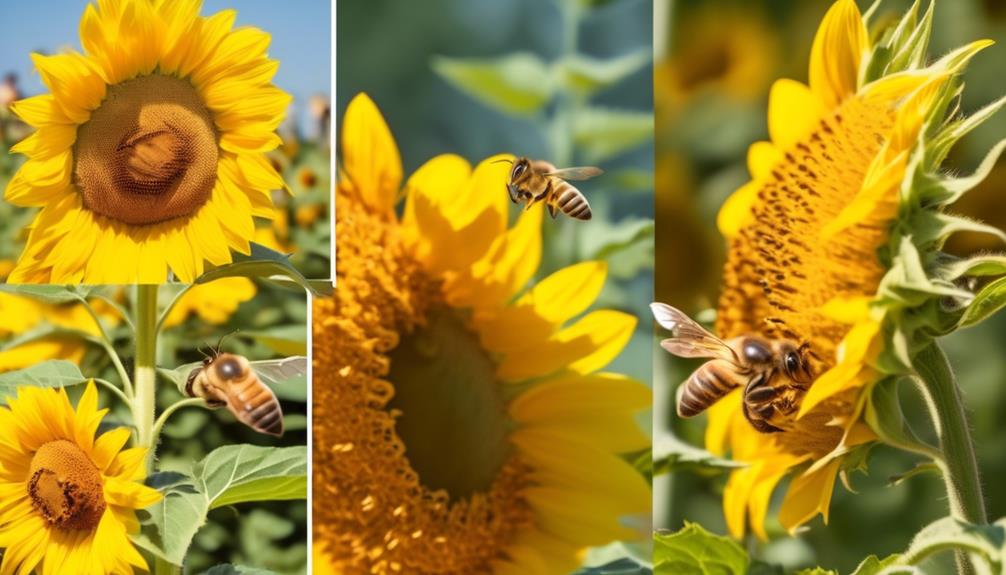
Let's now bust some common myths related to bees, shedding light on the facts and debunking the fiction that's been built up around these fascinating creatures.
One prevailing myth is that all bees sting. Truth is, only female bees have the ability to sting, and they only do so when they feel threatened.
Another misleading belief is bees are harmful. Quite the opposite, they play an integral role in pollination, contributing to the growth of plants and the food we eat. Without them, our food system would be in jeopardy.
You might've heard that bees are aggressive. Yet, most bees are not. They're actually quite docile unless provoked. The Africanized honey bee, often mistaken for all bees, is the aggressive one, thus, perpetuating this myth.
Lastly, the myth that all bees produce honey. In fact, out of 20,000 bee species, only a handful make honey. The rest fulfill other roles in the ecosystem.
These misconceptions about bees lead to unnecessary fear and avoidance. By debunking these myths, you're better equipped to appreciate bees for their crucial role in our ecosystem, rather than fearing them based on falsehoods.
Frequently Asked Questions
What Are the Different Types of Bees and How Do They Differ From Each Other?
You're looking at a world of diversity with bees.
Honeybees are famous for their honey and hive structure.
Bumblebees, larger and furrier, also pollinate, but live in smaller colonies.
Carpenter bees, solo artists, burrow into wood.
Then you've got killer bees, aggressive hybrids of European and African species.
They're all unique, but they share a common thread: they play vital roles in our ecosystem.
What Is the Life Cycle of a Bee?
You're curious about the life cycle of a bee! It's quite fascinating.
Bees go through four stages: egg, larva, pupa, and adult.
The queen lays the eggs. Once hatched, they're larvae and fed by worker bees.
Then they become pupae, encased in a protective cocoon.
Finally, they emerge as adult bees, ready to contribute to the hive.
Each stage plays a vital role in the hive's survival and health.
How Do Bees Contribute to the Ecosystem?
Bees play a crucial role in our ecosystem. They're vital pollinators, transferring pollen and seeds from one flower to another, fertilizing plants so they can grow and produce food. Without bees, many plants, including crops that we rely on for food, would struggle to reproduce.
You mightn't realize it, but when you enjoy fruits, vegetables, or nuts, you've bees to thank! They're not a bad omen, but a sign of a healthy environment.
What Are Some Common Health Risks or Allergies Associated With Bee Stings?
You're likely aware that bee stings can cause immediate pain and swelling.
But, did you know they may also trigger severe allergic reactions? In some people, they might lead to anaphylaxis, a life-threatening reaction causing difficulty in breathing and a sudden drop in blood pressure.
Others might experience a less serious reaction like hives and itching all over their body.
Always seek medical help if you're stung and exhibit these symptoms.
How Can One Prevent Bee Infestations in Residential Areas?
You can prevent bee infestations by regularly inspecting your home for nests, especially in spring. Remove potential food sources, like exposed garbage or flowering plants. Seal any small holes or cracks where bees might enter.
If you spot a nest, don't attempt to remove it yourself. Bees can become aggressive if threatened. Instead, call a professional pest control service.
Conclusion
So, are bees a bad omen? Not at all. Historically and culturally, they've been seen as symbols of diligence and positivity.
Scientifically, their behavior is essential for our planet's ecosystem. While superstitions persist, there's no concrete evidence tying bees to bad luck.
Any fears or myths surrounding bees should be debunked, as they're far more beneficial and fascinating than they're foreboding.
Let's appreciate bees for their vital role, rather than fearing them due to baseless superstitions.

